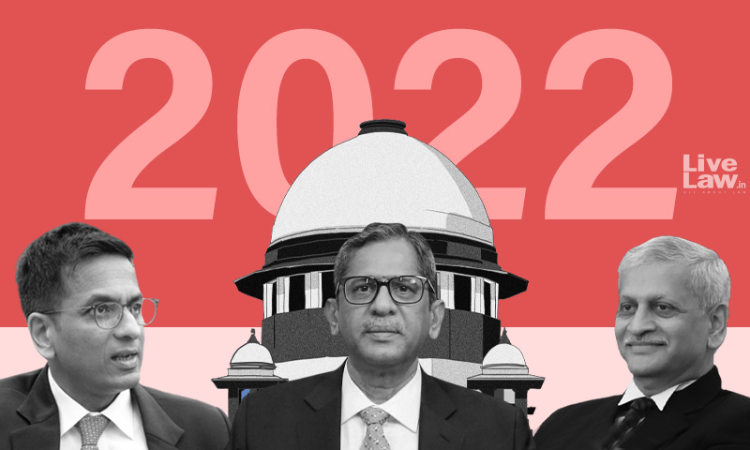Next Story
3 Jan 2022 10:27 AM IST
As the Supreme Court of India reopens today after the winter break, let us have a look at some of the changes and developments expected to take place in the judiciary in 2022.Three Chief JusticesThe year 2022 is likely to witness the tenure of three Chief Justices. The incumbent Chief Justice of India NV Ramana is set to retire on August 26, 2022. As per seniority turn, the next Chief Justice...

